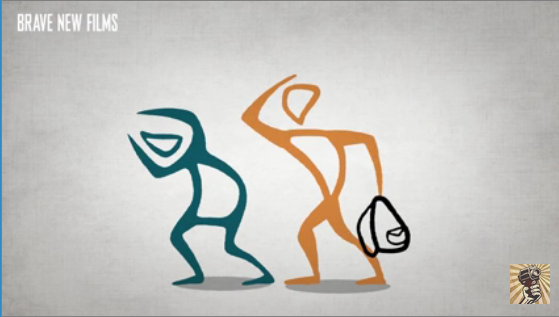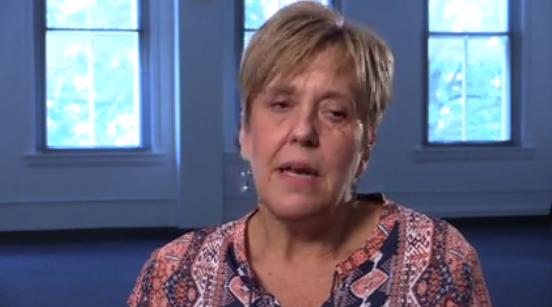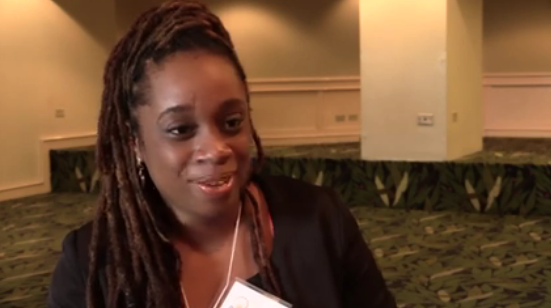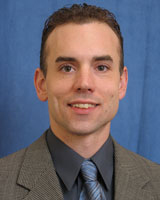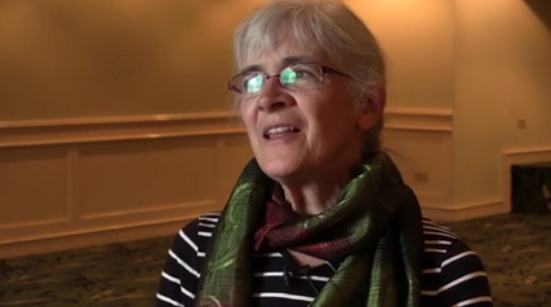News & Announcements
- Details
- Written by IIRP Staff
Brave New Films presents this short, animated film, which explains how restorative justice holds offenders accountable in ways that punitive criminal justice does not. Director of Common Justice Danielle Sered provided the narration.
- Details
- Written by Joshua Wachtel
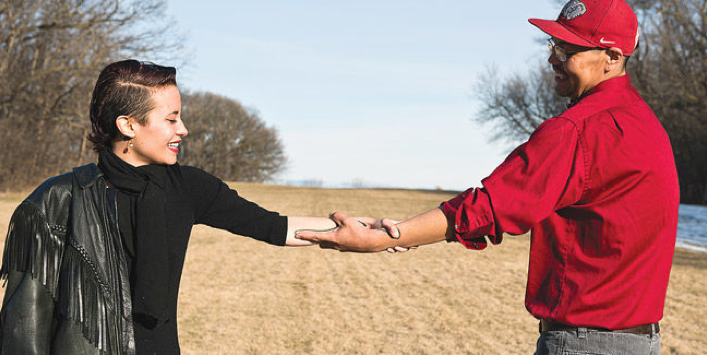 Patty and Dereck Stonefish, the founders of Arming Sisters/Reawakening Warriors, were featured in a Restorative Narrative by ivoh fellow Christa Hillstrom. (Photo by Dan Koeck/YES! Magazine)
Patty and Dereck Stonefish, the founders of Arming Sisters/Reawakening Warriors, were featured in a Restorative Narrative by ivoh fellow Christa Hillstrom. (Photo by Dan Koeck/YES! Magazine)
Engagement, empowerment and resilience — concepts integral to restorative practices — are also informing the development of a new genre of media and journalism called Restorative Narrative. Images of Voices and Hope (ivoh), a nonprofit that will present at the IIRP World Conference in October, believes that Restorative Narratives can enable media to create meaningful, positive change in the world.
- Details
- Written by Steve Grieger
Through the IIRP’s SaferSanerSchools Whole-School Change program, IIRP Lecturer and Instructor Mary Jo Hebling is helping hundreds of schools across the U.S. — urban to rural — including those in Detroit, Philadelphia, Newark, N.J., and Baltimore — implement restorative practices. In this video, she emphasizes that engaging students and parents in training and implementation makes a huge difference in improving school climate.
- Details
- Written by Laura Mirsky
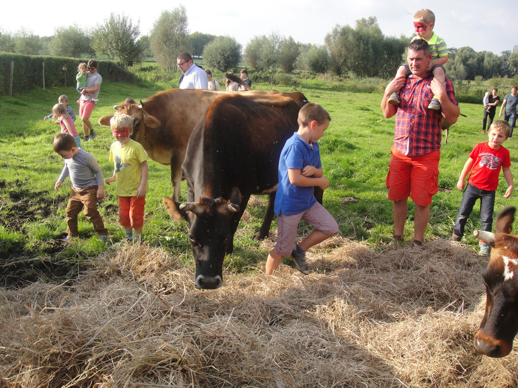 The people at the Belgian nonprofit, Ligand, are enhancing communication and relationships among young people and families, as well as the surrounding community. With innovation as their driving force, Ligand's staff continually reexamine and transform their practices to meet the evolving needs of the people they serve. As Ligand leader Stijn Deprez declares, "Working restoratively asks for innovation every day."
The people at the Belgian nonprofit, Ligand, are enhancing communication and relationships among young people and families, as well as the surrounding community. With innovation as their driving force, Ligand's staff continually reexamine and transform their practices to meet the evolving needs of the people they serve. As Ligand leader Stijn Deprez declares, "Working restoratively asks for innovation every day."
- Details
- Written by Joshua Wachtel
Restorative circles are building relationships and mutual understanding at a refugee camp in Belgium. The camp, like many others across Europe, is crowded with asylum seekers fleeing conflicts in Iraq, Syria and Afghanistan. In this environment of tension, hope and clashing cultures, circles are enabling people to be heard and resolve their conflicts. This work has the potential to improve conditions for refugees everywhere.
- Details
- Written by Steve Grieger
In this video, Keisha Martinez, a music therapist and adjunct lecturer at the University of the West Indies, discusses what she enjoyed most in her classes at the International Institute for Restorative Practices (IIRP) Graduate School.
- Details
- Written by Joshua Wachtel
Michael J. Gilbert, Ph.D., is dedicated to changing society by bringing together professionals in the fields of restorative and community justice who seek to repair harm and relationships and restore the safety of communities.
He has been executive director of the National Association of Community and Restorative Justice (NACRJ) since its founding in 2013 and a professor of criminal justice for nearly 50 years. Now associate professor of criminal justice at the University of Texas at San Antonio, Dr. Gilbert has collaborated for more than 10 years to help build NACRJ, a national nonprofit membership association for those working to cultivate a more humane and effective alternative to the dominant, punitive paradigm in criminal justice and related fields. He will present on the NACRJ’s vision, “Toward a Safe, Just, and Equitable Society,” at the 21st IIRP World Conference in October.
- Details
- Written by Joshua Wachtel
In May and June, the International Institute for Restorative Practices (IIRP) participated in three important national conversations on major issues facing the nation’s communities, colleges and schools.
“Restorative practices is very much becoming accepted as an emerging social science,” comments IIRP President John Bailie, Ph.D. “Some of the best minds around the country accept that our field has some of the most innovative and promising solutions to civil society’s biggest challenges.”
- Details
- Written by Steve Grieger
Kay Pranis discusses a restorative process for how we can heal racial wounds based on an understanding victims' needs. Pranis is a peacemaking circles expert who was a featured presenter at the IIRP Latinoamérica's Conference this June.
- Details
- Written by Joshua Wachtel
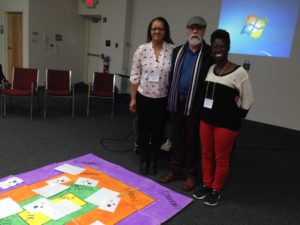 Rick Kelly, a professor in the Child and Youth Care (CYC) program at George Brown College (Toronto) and an IIRP alumnus, with students Sewsen Ikbu (left) and Amy Taylor at the 19th IIRP World Conference.
Rick Kelly, a professor in the Child and Youth Care (CYC) program at George Brown College (Toronto) and an IIRP alumnus, with students Sewsen Ikbu (left) and Amy Taylor at the 19th IIRP World Conference.
Rick Kelly, a professor in the Child and Youth Care (CYC) program at George Brown College (Toronto), has created a hub for restorative practices to support practical learning and social innovation by students at his college. Both students and the local community are benefitting from the hub, which is introducing restorative concepts and solutions to schools and neighborhoods.
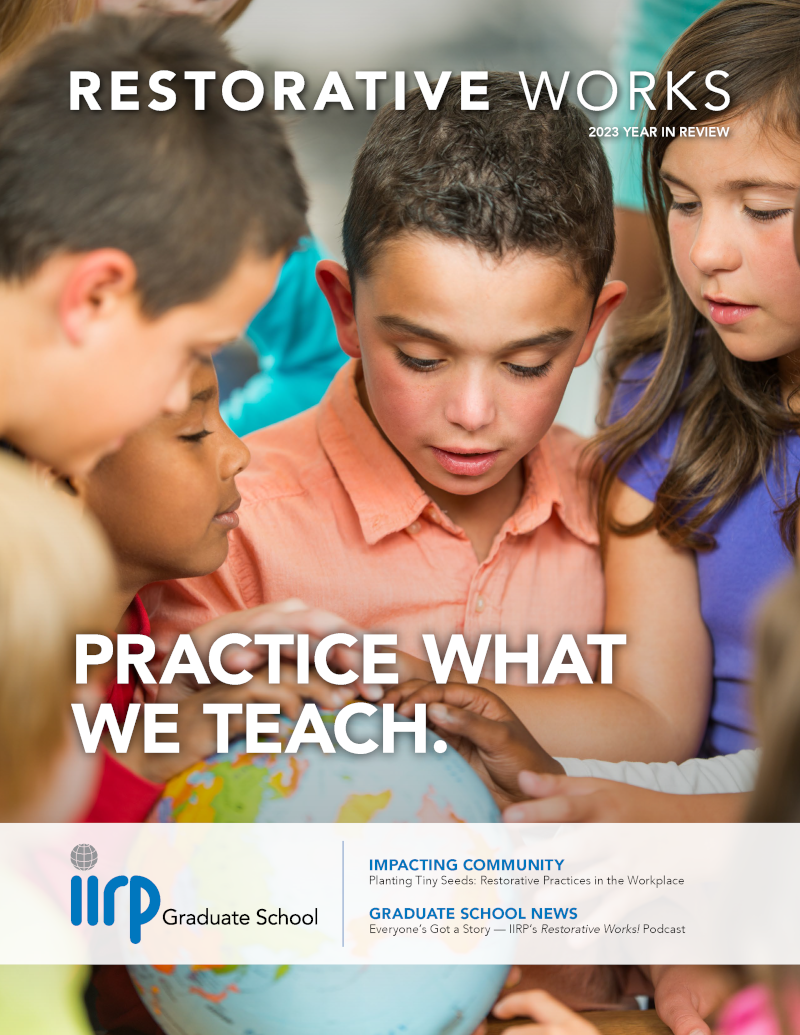
Restorative Works Year in Review 2023 (PDF)
All our donors are acknowledged annually in Restorative Works.

